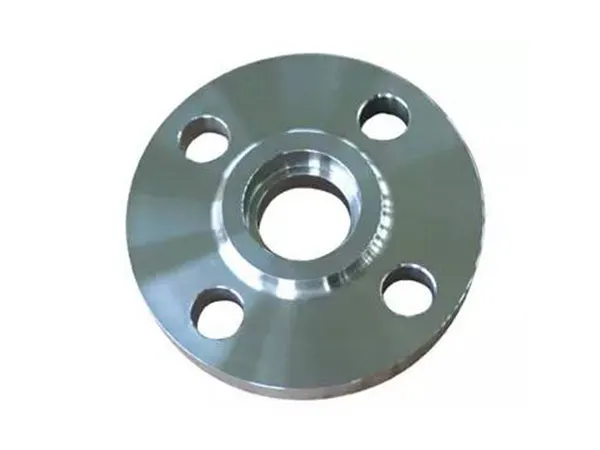-
Cangzhou Yulong Steel Co., Ltd.
-
Phone:
+86 13303177267 -
Email:
admin@ylsteelfittings.com
- English
- Arabic
- Italian
- Spanish
- Portuguese
- German
- kazakh
- Persian
- Greek
- French
- Russian
- Polish
- Thai
- Indonesian
- Vietnamese
- Zulu
- Korean
- Uzbek
- Hindi
- Serbian
- Malay
- Ukrainian
- Gujarati
- Haitian Creole
- hausa
- hawaiian
- Hebrew
- Miao
- Hungarian
- Icelandic
- igbo
- irish
- Japanese
- Javanese
- Kannada
- Khmer
- Rwandese
- Afrikaans
- Albanian
- Amharic
- Armenian
- Azerbaijani
- Basque
- Belarusian
- Bengali
- Bosnian
- Bulgarian
- Catalan
- Cebuano
- China
- China (Taiwan)
- Corsican
- Croatian
- Czech
- Danish
- Esperanto
- Estonian
- Finnish
- Frisian
- Galician
- Georgian
- Kurdish
- Kyrgyz
- Lao
- Latin
- Latvian
- Lithuanian
- Luxembourgish
- Macedonian
- Malgashi
- Malayalam
- Maltese
- Maori
- Marathi
- Mongolian
- Myanmar
- Nepali
- Norwegian
- Norwegian
- Occitan
- Pashto
- Dutch
- Punjabi
- Romanian
- Samoan
- Scottish Gaelic
- Sesotho
- Shona
- Sindhi
- Sinhala
- Slovak
- Slovenian
- Somali
- Sundanese
- Swahili
- Swedish
- Tagalog
- Tajik
- Tamil
- Tatar
- Telugu
- Turkish
- Turkmen
- Urdu
- Uighur
- Welsh
- Bantu
- Yiddish
- Yoruba

Dec . 19, 2024 10:05 Back to list
Optimizing Coupling Techniques in Threading Machine Operations for Enhanced Efficiency and Precision
Understanding Coupling and Threading Machines in Modern Manufacturing
In today’s manufacturing landscape, efficiency and precision are essential for maintaining competitiveness. Among the various tools and machines that facilitate these goals, coupling and threading machines play a pivotal role. These machines are designed to produce thread forms and connect components, ensuring that parts fit together seamlessly in a wide array of applications, from automotive to aerospace industries.
What are Coupling and Threading Machines?
Coupling and threading machines are specialized manufacturing devices used to create threaded connections between pipes, bolts, and other cylindrical components. A coupling machine specifically focuses on forming various types of couplings—devices that join two coaxial and flexible elements—not only ensuring a tight fit but also maintaining the integrity of the connection under stress. Threading machines, on the other hand, are tasked with creating threads, which are helical grooves on the surface of a cylinder that enable nuts and bolts to be fastened securely.
The Importance of Threading in Manufacturing
Threading is foundational to mechanical engineering. The ability to connect parts securely allows for the assembly of complex mechanisms and structures. For instance, in the automotive industry, threaded connections are essential for engines, transmissions, and chassis components. The reliability of these connections can significantly impact vehicle safety and performance. Coupling machines enhance this capability by quickly producing numerous connections that meet international standards for strength and durability.
Types of Threading Machines
Threading machines come in various types, each suited for specific applications and materials. The most common types include
1. Manual Threading Machines Ideal for small-scale operations, these machines require operator skill and offer flexibility in threading different sizes and types.
2. Automatic Threading Machines These are high-capacity machines designed for industrial production. They can operate at high speeds and produce consistent, precise threads with minimal human intervention.
3. CNC Threading Machines Computer Numerical Control (CNC) machines are highly advanced, offering precision threading for complex designs. They can be programmed to produce different thread profiles, making them ideal for customized manufacturing.
4. Thread Rolling Machines Unlike cutting methods, thread rolling uses pressure to form threads, which enhances material strength and improves surface finish. This method is particularly effective for high-volume production runs.
coupling threading machine

Applications of Coupling Machines
Coupling machines are widely used in industries where fluid or gas transfer is essential. They are particularly common in
- Oil and Gas Couplings are critical for pipeline installations, where secure connections are necessary to prevent leaks and ensure safety. - Manufacturing In machinery assembly, couplings allow for easy maintenance and disassembly, facilitating repairs and part replacements.
- Construction Couplings help in connecting various piping systems, ensuring the smooth transfer of water, air, and other fluids.
Advantages of Using Coupling and Threading Machines
The integration of coupling and threading machines into manufacturing processes offers numerous advantages
1. Increased Efficiency Automated and semi-automated machines speed up production times while maintaining quality and precision.
2. Reduced Labor Costs With machines handling the majority of the work, the need for manual labor is minimized, allowing skilled operators to focus on quality control and machine maintenance.
3. Consistency and Quality Machines produce uniform threads and couplings, leading to a reduction in defective parts and enhancing overall product reliability.
4. Flexibility in Production Programmable machines can be quickly adjusted for different specifications, allowing manufacturers to respond promptly to changing market demands.
Conclusion
Coupling and threading machines are indispensable in modern manufacturing, contributing to the creation of secure and efficient connections in various applications. As technology continues to evolve, these machines will likely become more sophisticated, incorporating advanced automation and precision techniques that will further enhance their capabilities. Embracing these innovations will be key for manufacturers striving to remain competitive in a rapidly changing industrial environment.
Latest news
-
ANSI 150P SS304 SO FLANGE
NewsFeb.14,2025
-
ASTM A333GR6 STEEL PIPE
NewsJan.20,2025
-
ANSI B16.5 WELDING NECK FLANGE
NewsJan.15,2026
-
ANSI B16.5 SLIP-ON FLANGE
NewsApr.19,2024
-
SABS 1123 FLANGE
NewsJan.15,2025
-
DIN86044 PLATE FLANGE
NewsApr.19,2024
-
DIN2527 BLIND FLANGE
NewsApr.12,2024
-
JIS B2311 Butt-Welding Fittings LR/SR 45°/90° /180°Seamless/Weld
NewsApr.23,2024











